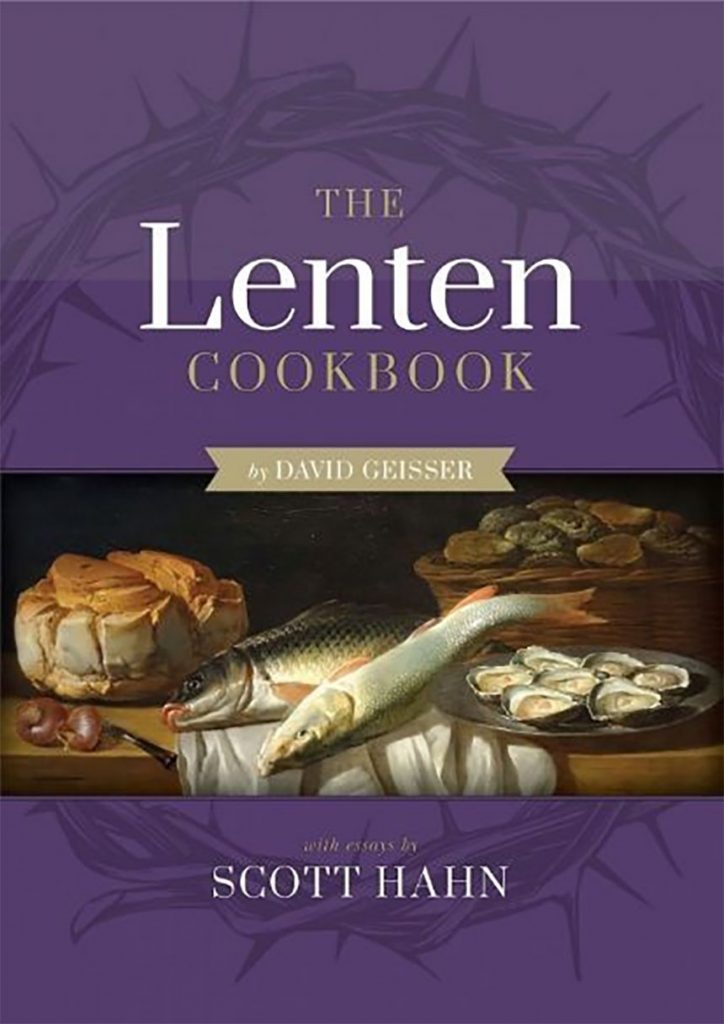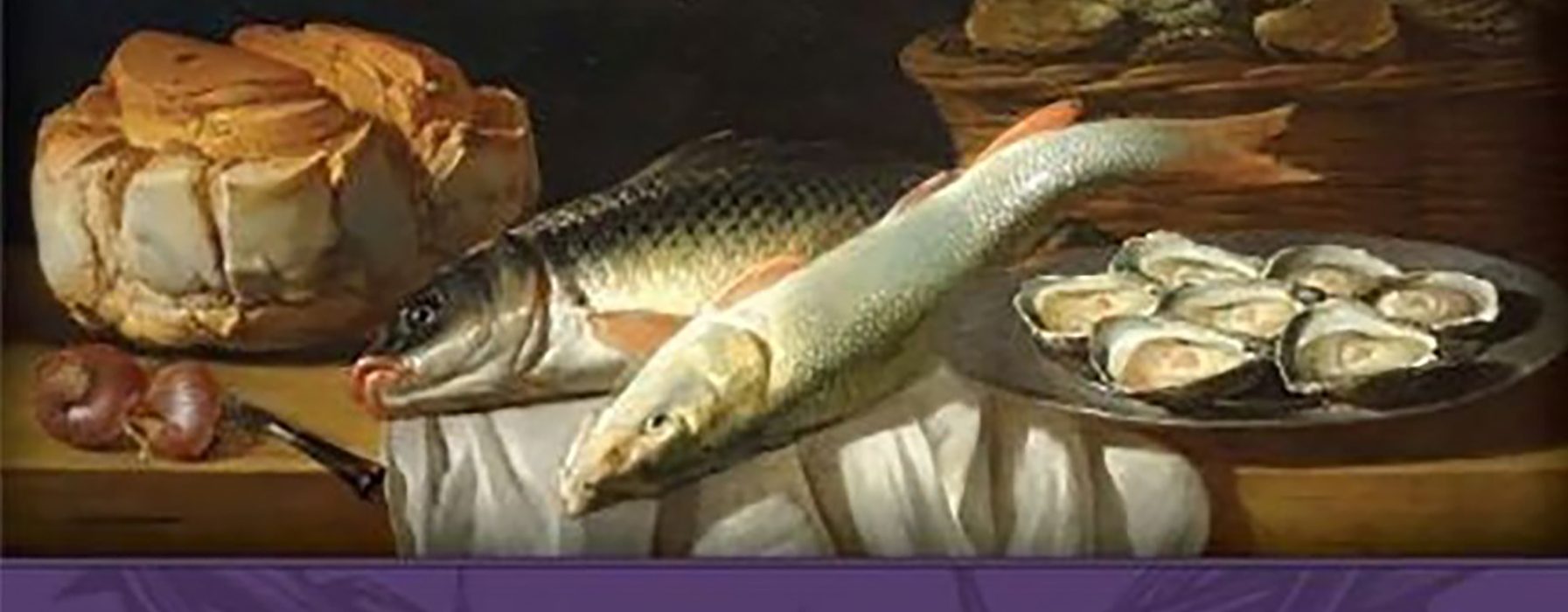March 8, 2022 // National
Cookbook for Lent offers much more than just delicious recipes
“The Lenten Cookbook” by David Geisser and Scott Hahn. Sophia Institute Press (Manchester, New Hampshire, 2022). 224 pp., $29.95.
Just in time for the penitential season of Lent, this beautifully written and illustrated guide features 75 delectable international recipes. Ranging from breakfast dishes, soups and salads, to main dishes, breads and desserts, they honor distinctive Catholic Lenten traditions.
Eggplant salad, snow pea curry with prawns, spelt-nut bread and ginger broth with noodles are among many recipes that don’t contain meat, eggs, milk products or alcohol. The many full-color photos of various dishes are tantalizing.

This is the book cover of “The Lenten Cookbook” by David Geisser and Scott Hahn. The book is reviewed by Nancy L. Roberts. (CNS photo/courtesy Sophia Institute Press)
All of the book’s recipes are newly developed by David Geisser, an award-winning chef and former Pontifical Swiss Guard who has written several cookbooks including “The Vatican Cookbook.” Here he includes many meatless dishes, such as cottage cheese frittata with cucumber and radish dip and lentil and eggplant moussaka.
There is even a list of substitutions for those who wish.
For instance, buttermilk can be replaced by adding 1 teaspoon of vinegar to any of the milk substitutes (such as plain soy, almond, rice or oat milks). For eggs, several substitutes include hydrated flax meal or chia seeds, 1/4 cup of applesauce and 1/4 cup of pureed silken tofu.
But this is much more than a cookbook.
Along with five variations for the Lenten hot cross bun recipe, we learn that they are traditionally eaten on Good Friday: “The cross etched on the top of the buns symbolically ties it to Christ’s crucifixion, while the raisins often used in the recipe symbolize the spices used in the embalming of Christ’s body for burial.”
This is but a small sample of the engaging essays contributed by Scott Hahn, a well-known biblical scholar who has written or edited more than 40 books. Here he covers the history of fasting and its place in modern practice.
You may be surprised to learn that “fasting wasn’t invented by Christians (or Jews, for that matter) but is a universal human practice that the Lord and his Church have sanctified.”
And, Hahn writes, “Fasting does improve our relationship with the divine, but it’s the loving, triune God of the Bible, not the cranky, man-made gods of ancient times or even the gods of fitness to whom we must dedicate our sacrifices.”
Historically, Christian fasting has been tied to particular days or seasons of the year and is “meant to be shared by entire Christian communities rather than invented by individuals to meet their own needs.”
Today while the tradition of liturgical fasting has faded in many regions, in some locales it still has a powerful cultural impact.
Indeed, “in parts of the country with significant Catholic heritage, major fast-food chains promote fish sandwiches during Lent,” Hahn observes. “This is a vestige of a real, living Catholic culture, one that transforms spiritual truths into embodied realities.”
Both a cookbook and a guide to Lenten history and practices, this well-designed and edited book encourages personal spiritual growth through the rediscovery of Lent.
Occasional Scripture verses and quotes from the saints enrich it, along with inspiring reproductions of classic paintings such as Millet’s “The Angelus” and Raphael’s “Disputation of the Sacrament.” Any Catholic will find much of interest here.
Roberts is a journalism professor at the State University of New York at Albany who has written/co-edited two books about Dorothy Day and the Catholic Worker.
The best news. Delivered to your inbox.
Subscribe to our mailing list today.






